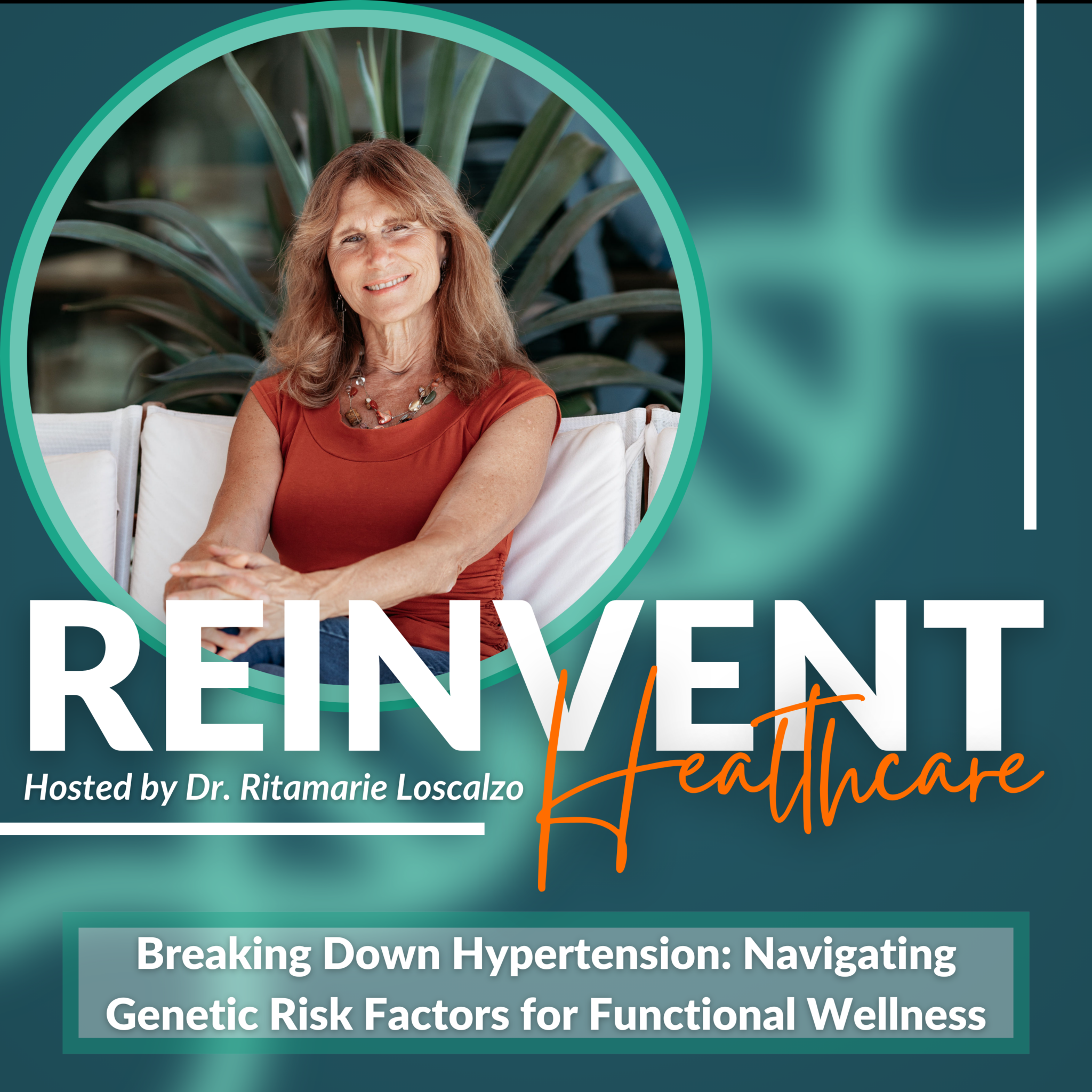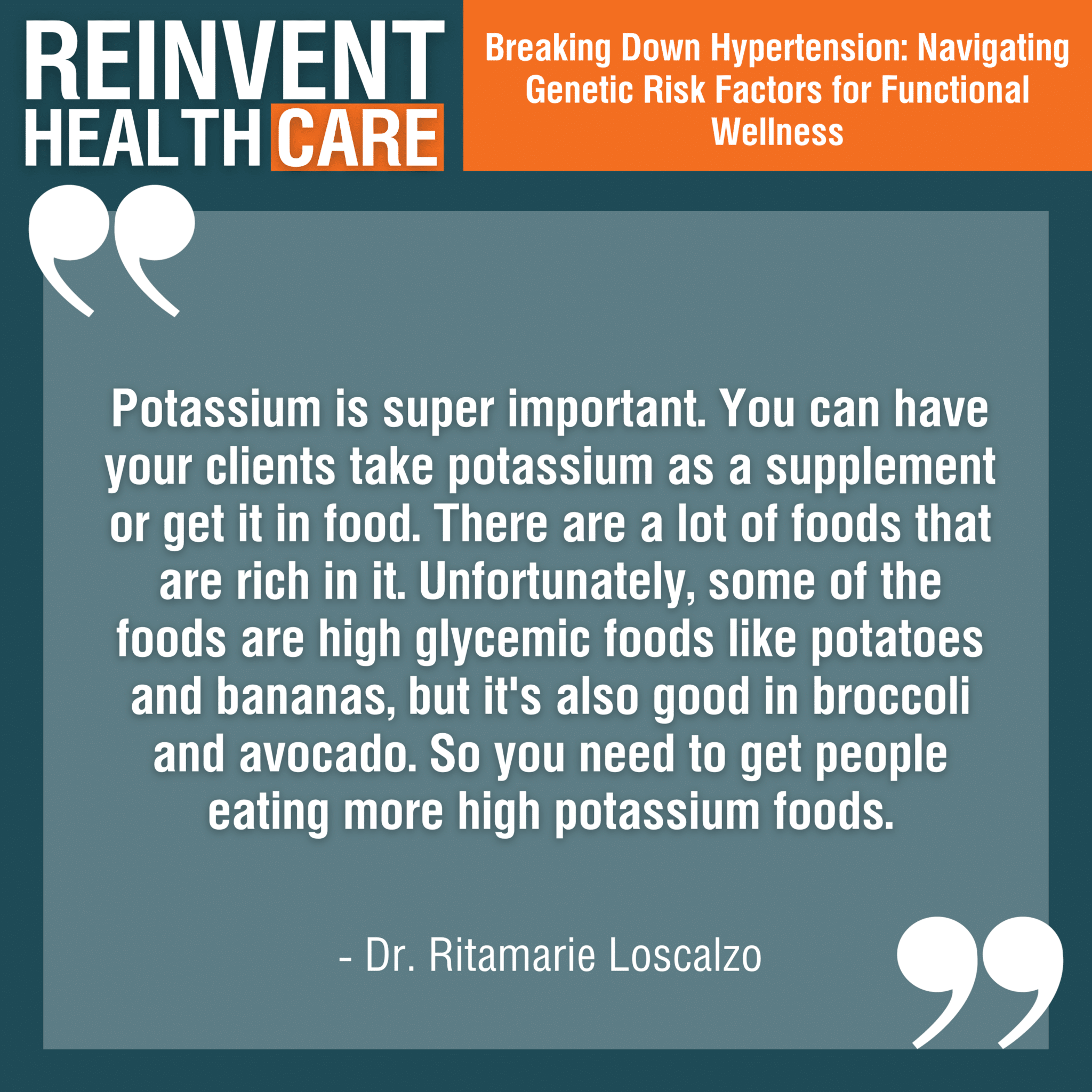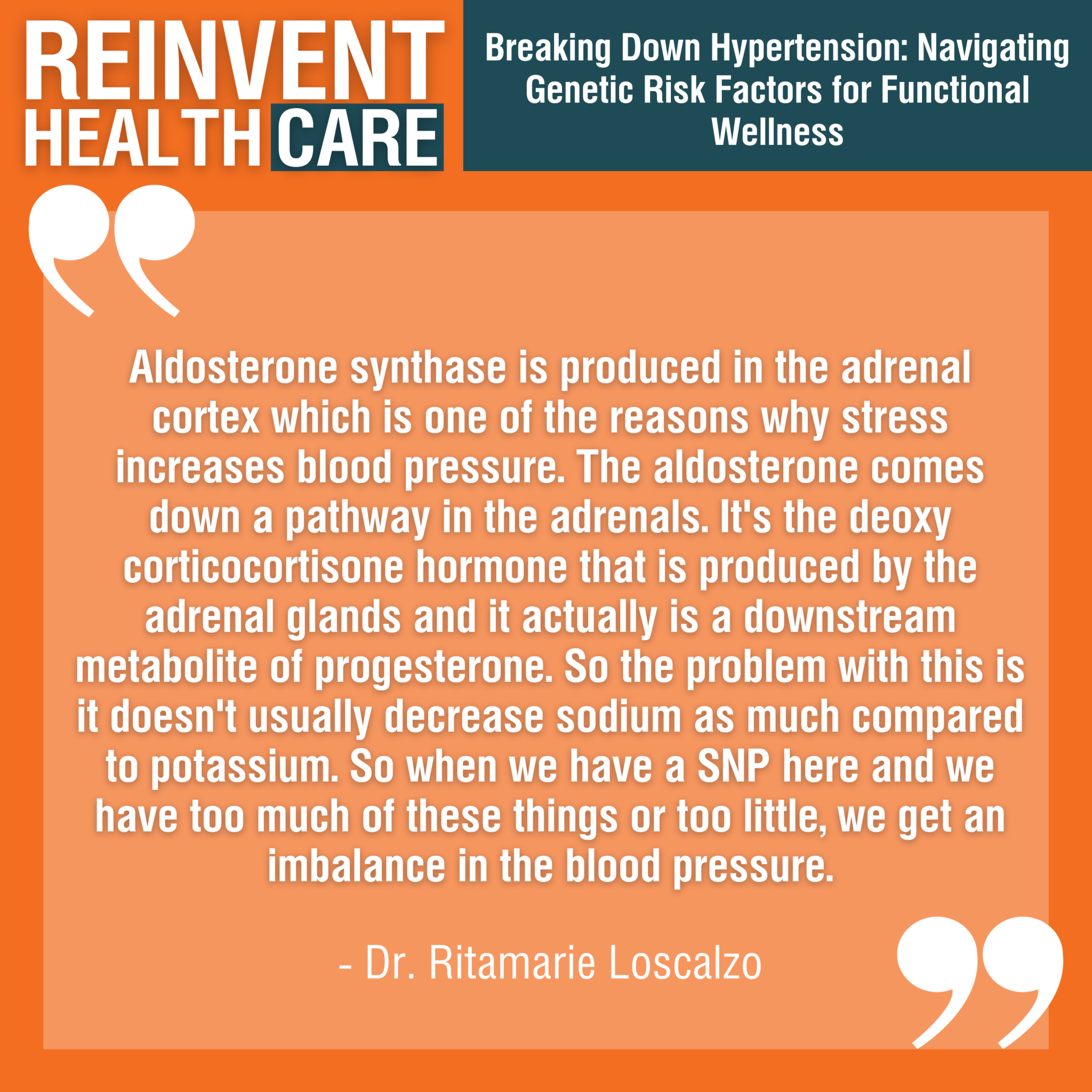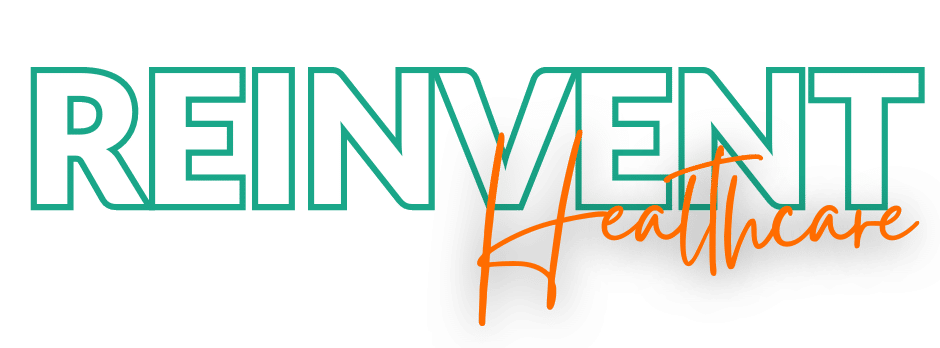Breaking Down Hypertension: Navigating Genetic Risk Factors for Functional Wellness

IN THIS EPISODE:
Understanding Hypertension
Hypertension, characterized by elevated blood pressure, particularly when it surpasses the threshold of 120 over 80, is a critical health concern due to its potential to result in severe complications, including strokes and debilitating headaches. This condition is thoroughly defined in the opening section, emphasizing its medical significance and the risks associated with it, such as strokes and other disabilities.
Genetic Factors
Genetic factors are known to exert a significant influence on hypertension. Specific genes, namely ACE (Angiotensin Converting Enzyme), AGTR1 (Angiotensin 2 receptor), NOS (nitric oxide synthase), and CYP11B2 (aldosterone synthase), have been pinpointed as key contributors to high blood pressure. These genetic elements play a pivotal role in critical physiological processes like kidney function, sodium regulation, and vasodilation, all of which are intricately linked to the control of blood pressure. The discussion surrounding these specific genetic factors and single nucleotide polymorphisms (SNPs), including ACE, AGTR1, NOS, and CYP11B2, offers valuable insights into the genetic underpinnings of hypertension and how these SNPs impact the intricate mechanisms governing blood pressure regulation.
Functional Approaches
Functional practitioners play a pivotal role in assisting individuals dealing with hypertension by employing a multifaceted approach. These strategies encompass dietary adjustments, such as increasing foods high in potassium, magnesium, and CoQ10, stress alleviation methods like meditation and yoga, regular exercise, and genetic profiling to personalize interventions. Additionally, the importance of accurate blood pressure measurement is highlighted, advocating the necessity of taking multiple readings to mitigate white coat hypertension and ensure precise results. The transcript underscores the critical role of lifestyle modifications, including stress-reduction techniques and dietary changes, such as adhering to the DASH diet, optimizing potassium and magnesium intake, and incorporating supplements like taurineto effectively lower blood pressure.
ReInvent Healthcare Links
- Get our FREE Guide to Taking a Detailed Health History that gets you to root causes.
- Access Additional Resources for Practitioners ready to improve clinical outcomes through our Nutritional Endocrinology Practitioner Training.
- Visit my ReInvent Healthcare site to check out other episodes that will be beneficial to you and your clients. You can also check out my Cardiovascular theme here.
- Attend SHINE Conference 2023: Genetics, Assessments, and Nutritional Strategies for Optimal Cardiovascular Function where Dr. Ellie will be spe








